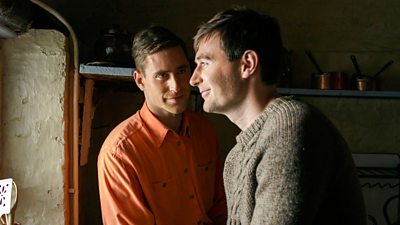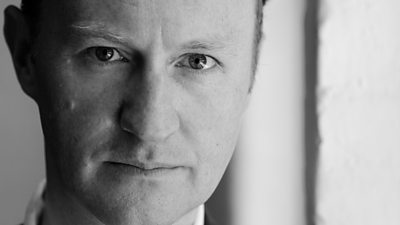�������� Four
Programming on �������� Four

Prejudice And Pride: The People’s History Of LGBTQ Britain (2 x 60)
In this unique series, lesbian, gay, bisexual, transgender and queer people from across the country have been digging out and sharing the mementos and memorabilia that changed their lives over 50 years since the landmark 1967 Act decriminalised homosexuality.
The result is a crowd-sourced collection of some of the rarest, most personal, most heartbreaking and inspiring artefacts in our history: a banned book, a nun’s habit, a passport, an original Heaven Gold card, naval discharge papers, George Michael’s autograph and the long-lost panels from the AIDS memorial quilt.
Produced by 7Wonder and presented by comedians Stephen K Amos and Susan Calman (pictured), the films chart a rollercoaster journey - from the audacity of a Gay Liberation Front commune, to the anguish of the AIDS crisis, from the struggle against Section 28 to the ecstasy of Pride ’97, from the death of friends in the Admiral Duncan bombing to the joy of a lesbian marriage - this is the story of all of us, the people we loved and the people we sometimes hated.
From being locked up for daring to love someone, to marrying that same person 50 years on, this extraordinary history is told by ordinary people through their personal stories and most treasured possessions.
Man In An Orange Shirt (2 x 60)

Gluck (1 x 60)
British artist Gluck (Hannah Gluckstein) was a well-known painter of the 1930s, who painted aristocrats, judges, socialites and flower arrangements. The British establishment, including the Royal Family, flocked to her shows.
What is perhaps surprising for the time is that Gluck also dressed as a man, had numerous female lovers and called her exhibitions ‘one-man shows’. So what did 1930s upper class society make of Gluck? This film tells the untold story of a celebrated artist who defied the prevailing definitions of gender and sexuality.
From the use of the word ‘invert’ in Hall’s infamous book The Well Of Loneliness, to the word ‘sapphist’ - used by upper class bohemians in the 1930s - female homosexuality wasn’t clearly defined in Gluck’s time - the word ‘lesbian’ not yet widely used. As well as Gluck’s personal story, this film explores the modern British history of female homosexuality and its representation in culture, literature, fashion and art: from the way fashion glamorised the androgynous look to Gluck’s most iconic painting Medallion, a double portrait of herself and her lover Nesta Obermer, which Gluck called her ‘marriage portrait’.
With exclusive access to part of the Gluck archive, the film will include interviews with Gluck’s relatives, official biographer Diana Souhami and leading experts in fashion, art and sexual politics, alongside Gluck admirers including Sandi Toksvig.
Queers (8 x 15)

Eight new and established writers respond to the 50th anniversary of The Sexual Offences Act in Queers, a series of monologues curated by Mark Gatiss.
Focussing chiefly on the gay male experience, the monologues begin in 1917 with The Man On The Platform - the story of a soldier returning from the trenches of the First World War and reflecting on both his attraction to another man and a very particular childhood memory. Other stories include Jackie Clune's A Perfect Gentleman, in which we meet Bobby, a dandy with a very unexpected secret, and Brian Fillis' More Anger, which examines the journey of a young gay actor in the 1980s.
Taking in 1957's Wolfenden Report, the HIV crisis and the 1967 Sexual Offences Act itself, these 15-minute monologues will mark and celebrate some of the most poignant, funny, entertaining, tragic and riotous moments before and after the '67 Act and the very personal rites-of-passage of British gay men through the last 100 years.
Queers is being produced in partnership with The Old Vic, who will stage all eight of the monologues in July in the run up to the television transmission.
Storyville - Queerama (1 x 70)
A �������� Storyville BFI archive film about a century of gay rights, desires and history, with a soundtrack by John Grant and collaborators.
